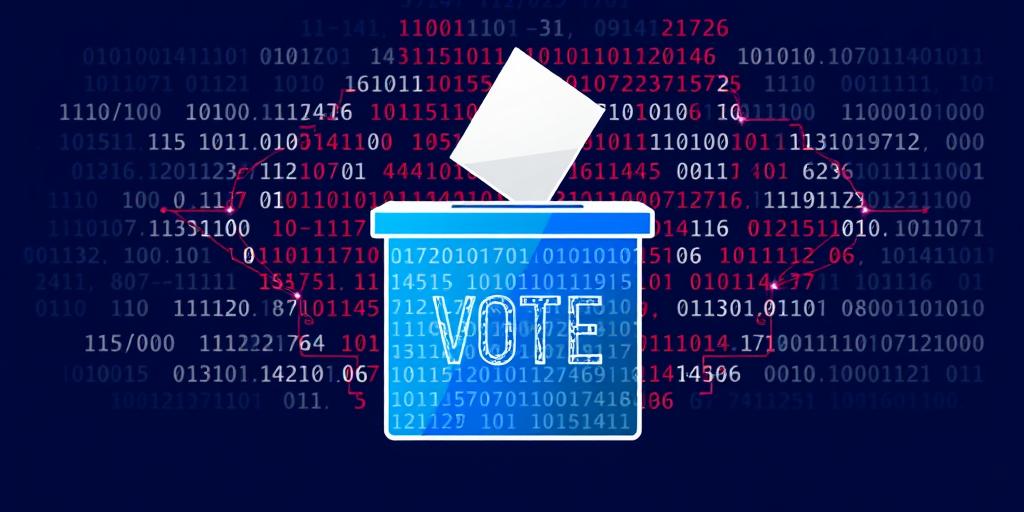Protecting Electoral Integrity in the Digital Age
In an era defined by rapid technological advancements, the integrity of electoral processes faces unprecedented challenges. The digital landscape, while offering numerous opportunities for civic engagement and information dissemination, also presents a fertile ground for disinformation, cyber threats, and manipulation. This article explores the multifaceted threats to electoral integrity in the digital age and outlines strategies for safeguarding democratic processes.
The Evolving Threat Landscape
The digital age has introduced new vectors of attack that can undermine public trust in elections and compromise their fairness. These include:
- Disinformation Campaigns: The spread of false or misleading information through social media and online platforms can influence public opinion and erode trust in electoral outcomes.
- Cyberattacks: Cyberattacks targeting electoral infrastructure, such as voter registration databases and electronic voting machines, can disrupt the voting process and compromise the accuracy of results.
- Voter Suppression: Digital technologies can be used to suppress voter turnout through targeted disinformation campaigns, intimidation, and the dissemination of false information about voting requirements.
- Foreign Interference: Foreign actors can use digital tools to interfere in electoral processes, often with the goal of influencing the outcome or sowing discord among the electorate.
Strategies for Safeguarding Electoral Integrity
Addressing these challenges requires a multi-faceted approach involving governments, technology companies, civil society organizations, and individual citizens. Key strategies include:
Strengthening Cybersecurity:
- Implementing robust cybersecurity measures to protect electoral infrastructure from cyberattacks.
- Conducting regular security audits and vulnerability assessments.
- Developing incident response plans to address and mitigate cyber threats.
Combating Disinformation:
- Promoting media literacy and critical thinking skills among citizens.
- Supporting fact-checking initiatives and efforts to debunk disinformation.
- Working with social media platforms to identify and remove false or misleading content.
Enhancing Voter Education:
- Providing clear and accessible information about voting procedures and requirements.
- Using digital tools to reach voters with accurate and timely information.
- Combating voter suppression efforts by disseminating information about voting rights.
Promoting Transparency and Accountability:
- Ensuring transparency in electoral processes, including voter registration, ballot counting, and auditing.
- Holding social media platforms accountable for the content hosted on their platforms.
- Establishing independent oversight bodies to monitor and investigate allegations of electoral interference.
Fostering International Cooperation:
- Sharing best practices and collaborating on strategies to counter digital threats to electoral integrity.
- Developing international norms and standards for responsible state behavior in cyberspace.
- Working together to attribute and respond to malicious cyber activities targeting electoral processes.
The Role of Technology Companies
Technology companies have a crucial role to play in safeguarding electoral integrity. They must take proactive steps to:
- Combat Disinformation: Implement policies and technologies to detect and remove false or misleading content from their platforms.
- Enhance Transparency: Provide greater transparency into the algorithms and content moderation practices that shape the information environment.
- Protect User Data: Safeguard user data from unauthorized access and misuse.
- Collaborate with Researchers: Work with independent researchers to study the impact of their platforms on electoral processes.
The Importance of Civic Engagement
Ultimately, protecting electoral integrity requires the active engagement of citizens. Individuals can:
- Stay Informed: Seek out credible sources of information and be critical of the information they encounter online.
- Promote Media Literacy: Share information about media literacy and critical thinking skills with friends, family, and community members.
- Report Disinformation: Report false or misleading content to social media platforms and fact-checking organizations.
- Participate in the Democratic Process: Vote in elections and encourage others to do so.
Conclusion
Protecting electoral integrity in the digital age is a complex and ongoing challenge. By strengthening cybersecurity, combating disinformation, enhancing voter education, promoting transparency and accountability, fostering international cooperation, and engaging citizens, we can safeguard democratic processes and ensure that elections remain free, fair, and credible. The future of democracy depends on our collective efforts to address the challenges posed by the digital age and uphold the integrity of electoral processes.









